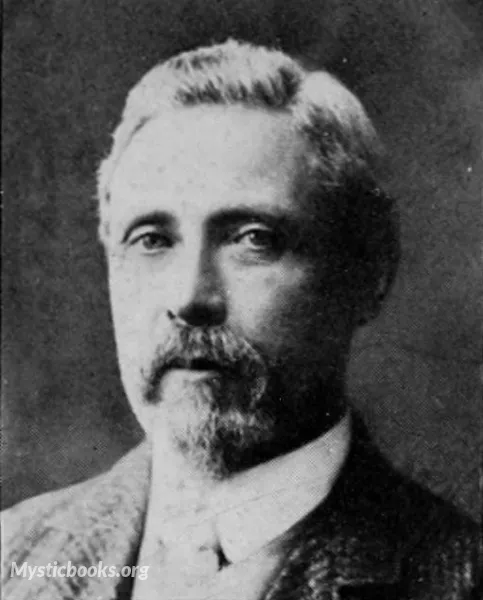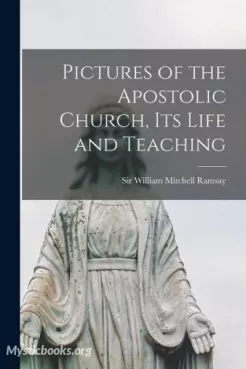
Timeline
Title
Country/Nationality
William Mitchell Ramsay
In this comprehensive essay, we delve into the extraordinary life of William Mitchell Ramsay, a renowned archaeologist and scholar. This piece explores his background, principles, notable achievements, and the lasting impact he has had on the field of archaeology. We also uncover Ramsay's philosophy, his legacy after his passing, and fascinating details about the author himself.
Who was William Mitchell Ramsay?
William Mitchell Ramsay (1851-1939) was a distinguished Scottish archaeologist, historian, and New Testament scholar. Born in Glasgow, Ramsay's early life was steeped in a love for history and classical literature. He pursued his education at the University of Oxford and later traveled extensively, conducting archaeological excavations in Asia Minor.
Principles and Methodology:
Ramsay's principles were rooted in meticulous research, empirical evidence, and a commitment to historical accuracy. His archaeological investigations were conducted with meticulous attention to detail, combining his expertise in classical studies and thorough fieldwork. Ramsay was known for his meticulous documentation and recording of findings, ensuring the integrity and reliability of his work.
Fame and Notable Works:
William Mitchell Ramsay gained widespread recognition for his groundbreaking research on the historical accuracy of the New Testament. His works, such as "The Historical Geography of Asia Minor" and "St. Paul the Traveler and Roman Citizen," challenged prevailing skepticism and reinforced the historical reliability of biblical accounts. Ramsay's research shed new light on the ancient cities and regions mentioned in the New Testament, confirming their existence and contextualizing their significance.
Ramsay's groundbreaking discoveries and scholarly contributions earned him international acclaim. His comprehensive studies, combined with his archaeological excavations, significantly enriched our understanding of the historical and cultural context in which biblical events took place.
Philosophy and Legacy:
William Mitchell Ramsay's philosophy was deeply rooted in an interdisciplinary approach, combining rigorous historical research, archaeology, and the study of ancient texts. He believed that a holistic approach, incorporating diverse sources of evidence, was essential to uncovering the truth about the past. Ramsay's commitment to rigorous methodology and evidence-based research laid the foundation for modern archaeology and historical studies.
Ramsay passed away on April 20, 1939, leaving behind a profound legacy in the fields of archaeology and biblical studies. He is remembered as a pioneering figure who revolutionized the understanding of the ancient world, particularly in relation to the New Testament. His meticulous approach and commitment to objective analysis continue to inspire scholars and archaeologists today.
Ramsay's contributions to archaeology and his profound impact on biblical studies have left an indelible mark. His works remain influential, shaping the field of historical research and inspiring subsequent generations of scholars. His meticulous documentation and precise methodology have set a standard for archaeological investigations, ensuring that his legacy continues to guide and inform archaeological practices.
Interesting Facts about the Author:
Apart from his archaeological and scholarly pursuits, William Mitchell Ramsay had a deep appreciation for art and culture. He was an accomplished watercolor painter and a connoisseur of the arts. His passion for beauty and his keen eye for detail are reflected not only in his archaeological endeavors but also in his artistic pursuits.
Ramsay's dedication to the meticulous examination of historical evidence and his ability to bridge the gap between biblical accounts and archaeological discoveries have solidified his reputation as a trailblazer in the field. His contributions to our understanding of the ancient world and his unwavering commitment to historical accuracy continue to inspire researchers, historians, and archaeologists, ensuring that his name remains synonymous with excellence in the field of archaeology.
Conclusion:
William Mitchell Ramsay's remarkable life and groundbreaking work have left an indelible imprint on the fields of archaeology, biblical studies, and historical research. Through his meticulous excavations, rigorous methodology, and interdisciplinary approach, Ramsay redefined our understanding of the ancient world, particularly in relation to the New Testament. His commitment to historical accuracy and empirical evidence continues to inspire scholars and shape the field of archaeology today. Ramsay's enduring legacy serves as a testament to his unwavering dedication to uncovering the truth of the past and his profound impact on the study of history and archaeology.
Books by William Mitchell Ramsay

Pictures of the Apostolic Church: Its Life and Teaching
"Step back in time and witness the captivating journey of the early Christian community as renowned historian William Mitchell Ramsay unveils a vivid portrait of the Apostolic Church, its vibrant life, and profound teachings." In "Pictures of the Apo...